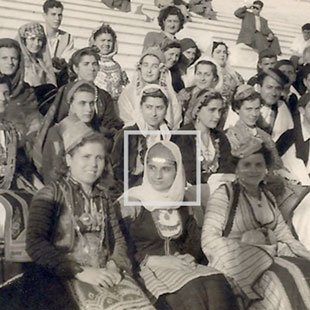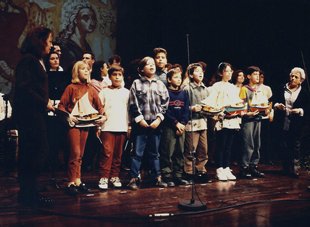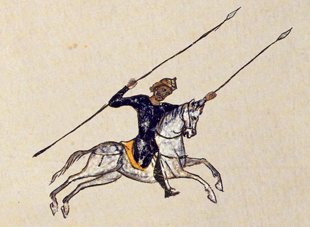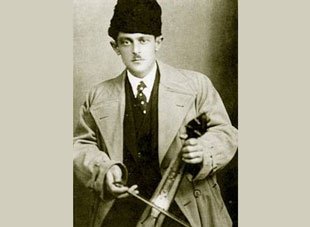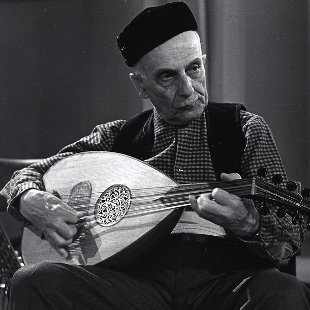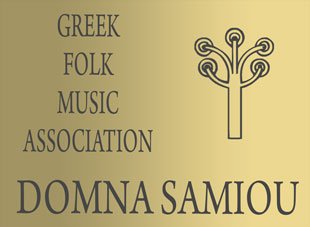You are at: Home page Her Work List of Songs The Abduction of Levandis’ Daughter by Digenis
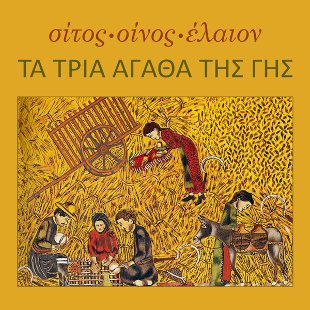
The Abduction of Levandis’ Daughter by Digenis

Listen
Lyrics
– Wait one moment, Digenis, and I’ll tell you what to do.
If you understand what I tell you, go abduct the bride.
Take this pathway, this narrow path,
and it will lead you to a grassy meadow,
where you’ll find a bushy olive tree.
Dismount there, cut a thick branch off and make a tamboura.1
Kill snakes and wild animals and string the tamboura.
Use black strings for the bass and white strings in the middle
so the tambouras will play every sweet tune in the world.
Digenis did Filiopappous’ bidding.
He took that pathway, that narrow path,
and the path led him to a grassy meadow.
He found the bushy olive tree, dismounted there,
cut a thick branch off and made a tamboura.
He killed snakes and wild animals and made strings for it.
He put black strings for the bass and white strings in the middle.
And the tamboura played all the sweet tunes in the world.
So the birds in the sky flew down and sang along,
and the wild beasts in their dens listened.
Full of joy, he leapt on his horse and rode.
He arrived at the wedding feast at sunset.
Translated by Michael Eleftheriou
1The tambouras is a three-stringed instrument of great antiquity with a pear-shaped body and a long neck. It is played with a quill or a bow in intervals corresponding to fractions of a semi-tone. Its name is from the Arabic-Turkish tambura, ta(u)nbur (a kind of lute), though it has been linked, albeit without definite proof, to the Ancient Greek and Byzantine pandoura, which was believed in antiquity to be a Babylonian name and instrument. Many believe no other instrument can deliver the tamboura’s sweet sound and wealth of tonal colour that makes it such a perfect accompaniment for the human voice. A lot of folk songs refer to the magical effect the tamboura can have on those that hear it.
Original Lyrics
Η αρπαγή της κόρης του Λεβάντη από τον Διγενή
– ’Πόμεινε τώρα, Διενή, για να σου παραντζείλω,
αν πκιάσης την παραντζελιάν, την νιόνυφην να κλέψης.
Τζιαι πκιάσε τούτον το στρατίν, τούτον το μονοπάτιν,
το μονοπάτι βκάλλει σε σέ δασερόλ λιβάιν,
τζιαι εύρε δασερήν1 ελιάν, 'που κάτω να πεζέψεις
τζιαι κόψε κούρμην2 της ελιάς τζιαι κάμε μιαν ταμπούραν,3
σκότωσε φίδκια τζιαι θερκά τζιαι βάλτε του για κόρτες,
τζιαι βαρ’ τες μαύρες για χοντρές, τες άσπρες για μεντζάνες,4
τότες να παίξ’ ο τταμπουράς του κόσμου τες γλυκάες.
Καθώς του είπεν έκαμεν, καθώς του παραντζέλει.
Έπκιασεν τζείνον το στρατίν, τζείνον το μονοπάτιν,
το μονοπάτιν βκάλλει τον σε δασερόλ λιβάιν
τζ’ εύρίσκει δασερήν ελιάν, που κάτω τζιαι πεζεύκει,
τζιαι κόβκει κούρμην της ελιάς τζιαι κάμνει την ταμπούραν,
σκοτώννει φίδκια τζαι θερκά τζιαι βάλλει του τες κόρτες,
βάλλει τες μαύρες για χοντρές, τες άσπρες για μεντζάνες
τζιαι έπαιξεν ο ταμπουράς του κόσμου τες γλυκάες,
τζιαι τα πουλιά του ουρανού χαμαί ετζεί λαούσαν
τζιαι τα θερκά στες τρύπες τους τζειν’ αρκολοηθήκαν.5
’Που τες χαρές του τες πολλές ππηδά καβαλιτζεύκει.
Ετσά κατά τα δειλινά μέσα στογ γάμον μπαίνει.
1δασερήν: φουντωτή
2κούρμην: χοντρό κλαρί
3ταμπούραν: Ο ταμπουράς είναι πολύ παλιό τρίχορδο όργανο με αχλαδόσχημο ηχείο και μακρύ μπράτσο. Παίζεται με πένα ή με δοξάρι και μπορεί να εκτελεί διαστήματα που αντιστοιχούν σε κλάσματα του ημιτονίου. Το όνομα προέρχεται από το αραβοτουρκικό tambura, ta(u)nbur (είδος λαούτου), αν και συσχετίζεται, χωρίς όμως να είναι καθόλου βέβαιο, με το αρχαιοελληνικό και βυζαντινό «πανδούρα» που θεωρείται ήδη από τους αρχαίους βαβυλωνιακό όνομα και όργανο. Πιστεύεται ότι κανένα όργανο δεν μπορεί να δώσει τον γλυκό ήχο και τον πλούτο των τονικών χρωμάτων του ταμπουρά και να συνοδεύσει τόσο τέλεια την ανθρώπινη φωνή. Πολλοί στίχοι δημοτικών τραγουδιών αναφέρονται στη μαγευτική επίδρασή του.
4μεντζάνες : οι μεσαίες χορδές
5αρκολοηθήκαν: άκουσαν, έστησαν αυτί
Information
- Region: Cyprus
- Categories: Acritic Song
- Rhythm: 2 beats
- Duration: 03:20
Collaborators
- Singer: Michalis Tterlikkas
Albums
Notes
The melody was improvised by Michalis Terlikkas, based on narrative songs he recorded sung by Stavros Kotziabasis (1897–1986) from Karavas in 1976.
Recording information
Studio recording, 2004.
Member Comments
Post a comment
See also
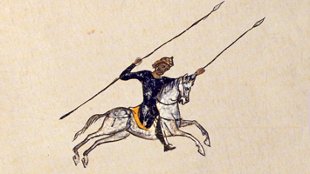
Song
The Abduction of Levandis’ Daughter by Digenis
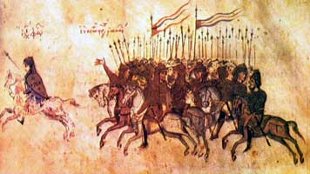
Song
The Four Palikari

Song
Andrónikos and His Black Steed
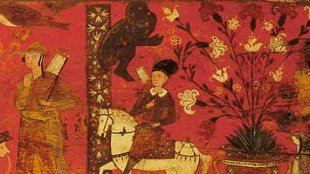
Song
Aroafnou


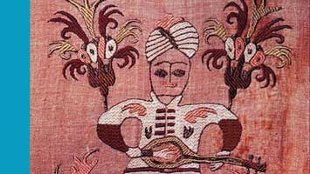
Song
Four and Four
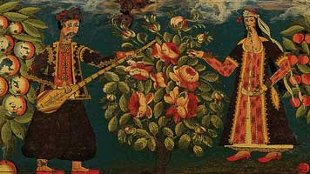
Song
If I Had an Orchard

Song
In a Fine Orchard
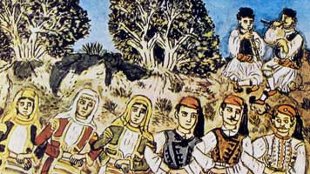
Song
Marandon

Song
Ploughed Garden of Mine

Partner
Socrates Sinopoulos
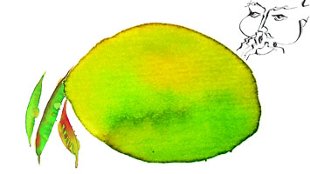
Song
Sweet Perfumed Lemon
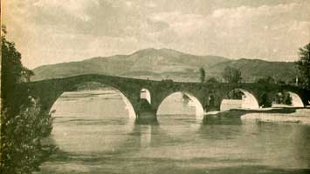
Song
Tellyrkotissa


